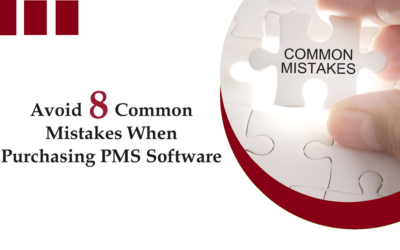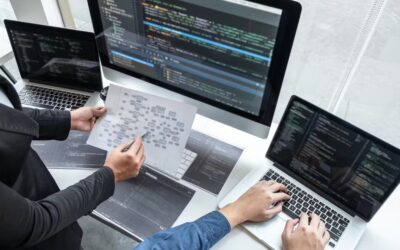
In an era of rapid technological advancement, industries across the board are undergoing significant transformations. One such sector that is experiencing a profound shift is the hotel management industry. The traditional methods of managing hotels are giving way to innovative solutions powered by Property Management System (PMS) software. These systems are revolutionizing the way hotels operate, providing enhanced efficiency, guest satisfaction, and profitability.
In this blog post, we’ll dive into the future of hotel management and explore how PMS software is shaping the industry.
The Evolution of Hotel Management
- The Early Days & The Rise of Computerization
In the early days of hospitality, hotel management was a hands-on affair. Hoteliers maintained physical ledgers to record guest information, reservations, and transactions. The advent of computers introduced a new level of automation, streamlining reservation and check-in processes. However, these early systems were often disconnected and lacked the comprehensive features required to manage the myriad aspects of a modern hotel. Enter the era of Property Management System (PMS) software.
2. The Rise of PMS Software
PMS software has emerged as a game-changer in the hospitality industry. These systems serve as centralized platforms that integrate various hotel operations, from reservations and guest profiles to housekeeping and billing. With cloud-based solutions becoming increasingly prevalent, PMS software offers real-time accessibility, enabling hotel staff to manage tasks from any device with an internet connection.
Benefits of PMS Software:
Efficient Operations:
PMS software streamlines numerous processes, such as online booking, check-ins, room assignments, and check-outs. This efficiency translates to reduced wait times and enhanced guest satisfaction.
Guest Profiles:
PMS software allows hotels to maintain comprehensive guest profiles, noting preferences, special requests, and past stays. This information enables personalized service, creating memorable experiences that encourage repeat business.
Housekeeping Management:
The software’s housekeeping module facilitates effective room cleaning schedules, ensuring rooms are ready for new arrivals promptly.
Billing and Invoicing:
PMS software automates billing processes, generating accurate invoices and reducing the chances of errors. It also integrates with payment gateways, enabling secure transactions.
Reporting and Analytics:
Hotel managers can access real-time data and analytics through PMS software. This data-driven approach assists in making informed decisions to improve overall operations.
The Future Landscape of Hotel Management
As technology continues to evolve, the future of hotel management is set to be even more intertwined with advanced PMS software. Several trends are shaping the landscape:
1. Mobile Integration:
Smartphones have become an integral part of our lives, and the hotel industry is leveraging this trend. PMS software providers are developing mobile apps that allow guests to check in, unlock their rooms, control room settings, and even place orders for room service through their devices. This seamless integration enhances convenience and guest satisfaction.
2. Automation and AI:
Artificial Intelligence (AI) and automation are transforming hotel management. Chatbots powered by AI can handle guest inquiries and provide instant responses, enhancing customer service. Automation also extends to housekeeping, where robots can be employed for routine tasks, optimizing staff productivity.
3. Personalization:
Guests are increasingly seeking personalized experiences during their stays. PMS software plays a crucial role in this aspect by enabling hotels to tailor services based on guest preferences. From room amenities to dining options, personalization enhances guest loyalty and sets hotels apart in a competitive market.
4. Sustainability:
Environmental consciousness is driving hotels to adopt sustainable practices. PMS software aids in this endeavour by managing energy consumption, tracking resource usage, and supporting waste reduction initiatives. These efforts not only contribute to a greener planet but also resonate with eco-conscious travellers.
5. Data Security:
With the increasing reliance on digital platforms, data security has become paramount. PMS software providers are implementing robust security measures to safeguard guest information, payment details, and other sensitive data.
Overcoming Challenges and Embracing the Future
While the future of hotel management holds immense promise with PMS software, there are challenges that need to be addressed. Transitioning to new technology can be met with resistance from staff accustomed to traditional methods. Proper training and change management strategies are essential to ensure a smooth transition.
Additionally, selecting the right PMS software that aligns with a hotel’s specific needs is crucial. Factors such as the size of the property, the range of services offered, and the desired level of automation should all be considered when choosing a system.
Conclusion
The hotel management industry is undergoing a profound transformation, and PMS software is at the forefront of this revolution. With its ability to streamline operations, enhance guest experiences, and drive profitability, PMS software is shaping the future of hospitality. As technology continues to advance, embracing these innovations will be key to staying competitive and providing exceptional service in the ever-evolving landscape of the hotel industry.





0 Comments